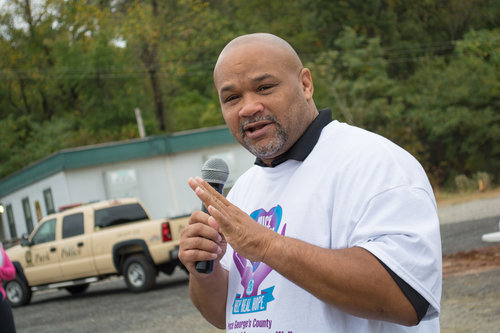Prince George’s Lawmakers Ponder Bill to Unleash Developer Cash

The powerful chairman of the House Economic Matters Committee has sponsored a bill that would lift a ban on developer contributions in Prince George’s County – a law that went into effect following a widespread corruption scandal that rocked the county for several years.
Economic Matters Chairman Dereck E. Davis (D-Prince George’s) is the sponsor of a local bill that would repeal the prohibition on developers or their agents making campaign contributions to the Prince George’s County executive or a political slate that includes the county executive when the developer has a proposed project pending before the county government.
The bill is scheduled to be considered by the Prince George’s County House delegation on Friday morning. It has broad political implications, touching on everything from the county’s history of corruption, to its new public financing law for political campaigns, to the possible aspirations of current and future Prince George’s political leaders.
In an interview Thursday, Davis said he sponsored the bill in part because the prohibition, which went into effect in 2012, is no longer necessary.
“Everyone knows it was in response to the whole Jack Johnson situation,” Davis said, referring to the former Prince George’s County executive who did time in federal prison after being caught accepting bribes from developers and other businessmen. “There was a crisis in confidence in county government.”
The measure was put into place by the state legislature at the insistence of Johnson’s successor, former county executive Rushern L. Baker III (D), as he tried to promote Prince George’s as a place where elected officials weren’t on the take.
Davis said he believes the law may violate free speech – an argument often made by opponents of campaign finance restrictions. He also asserted that the law isn’t necessary, because land use and development decisions in Prince George’s County are largely made by the County Council, not the executive. And he said the corruption cases that have roiled the county in recent years have involved public officials looking to enrich themselves – rather than campaign finance violations.
“I would compare that [law] to, like, if you break your arm, you go and get your flu shot,” Davis said.
The veteran lawmaker, when he isn’t performing his legislative duties, works for the Prince George’s County government, as deputy director of community relations – a job he held during the Baker administration and now holds under the newly sworn-in county executive, Angela D. Alsobrooks (D).
Davis said he intentionally did not confer with Alsobrooks before introducing his legislation – an assertion confirmed by the county executive’s spokesman, John Erzen.
“It was certainly not a bill that we requested…It’s not something we’re focused on in Annapolis,” Erzen said.
But Alsobrooks could be a beneficiary if the bill passes – and if she decides to run for statewide office some day. Davis and other supporters of removing the prohibition on developer contributions argue that Baker was financially hamstrung during his unsuccessful 2018 gubernatorial campaign because he could not accept contributions from many developers – and their lawyers, engineers, agents and contractors who have projects under review by the county.
Developers and real estate interests have cast a long shadow over county elections across Maryland. Two decades before the state law preventing Prince George’s executives from raising money from developers with projects pending before the county government, the state passed a law in 1992 preventing Prince George’s developers from contributing to local candidates – unless they were part of a political slate.
While Prince George’s current ban on developer donations to county executives is unique – and unfair, in the view of Davis and his allies – political leaders in some other counties have at least discussed the possibility of pursuing a similar prohibition. Anne Arundel County Executive Steuart Pittman (D) recently suggested that such a law would be desirable in his county.
Damon Effingham, executive director of Common Cause, said the political watchdog group believes “you should apply the rules that Prince George’s County has to other counties as well – rather than pulling back.”
Davis is pursuing his legislation as Prince George’s leaders prepare to set up a public financing system for county campaigns – in the 2026 election cycle. Freshman Del. Mary A. Lehman (D-Prince George’s) – the chief sponsor of the public financing legislation when she was a member of the County Council, who reluctantly accepted a compromise to delay the launch of the system – said she would oppose Davis’ legislation as long as the public financing system is so far from kicking off.
“Somebody moves that up to 2022, I’ll consider it,” she said. “But until then, no.”
Lehman also rejected the argument that Prince George’s County executives have no influence over development projects or land use policies. Executives, Lehman said, set tax policies and incentives that can be applied to specific projects, and they also appoint all the members of the county planning board.
“That’s not entirely true to say the county executive doesn’t have a role,” she said.
If the Prince George’s delegation approves Davis’ measure, it would go to the full House. Davis said he is unlikely to bring the legislation back if it fails this year.
“I understand that eyebrows are going to be raised,” he said.




 Creative Commons Attribution
Creative Commons Attribution